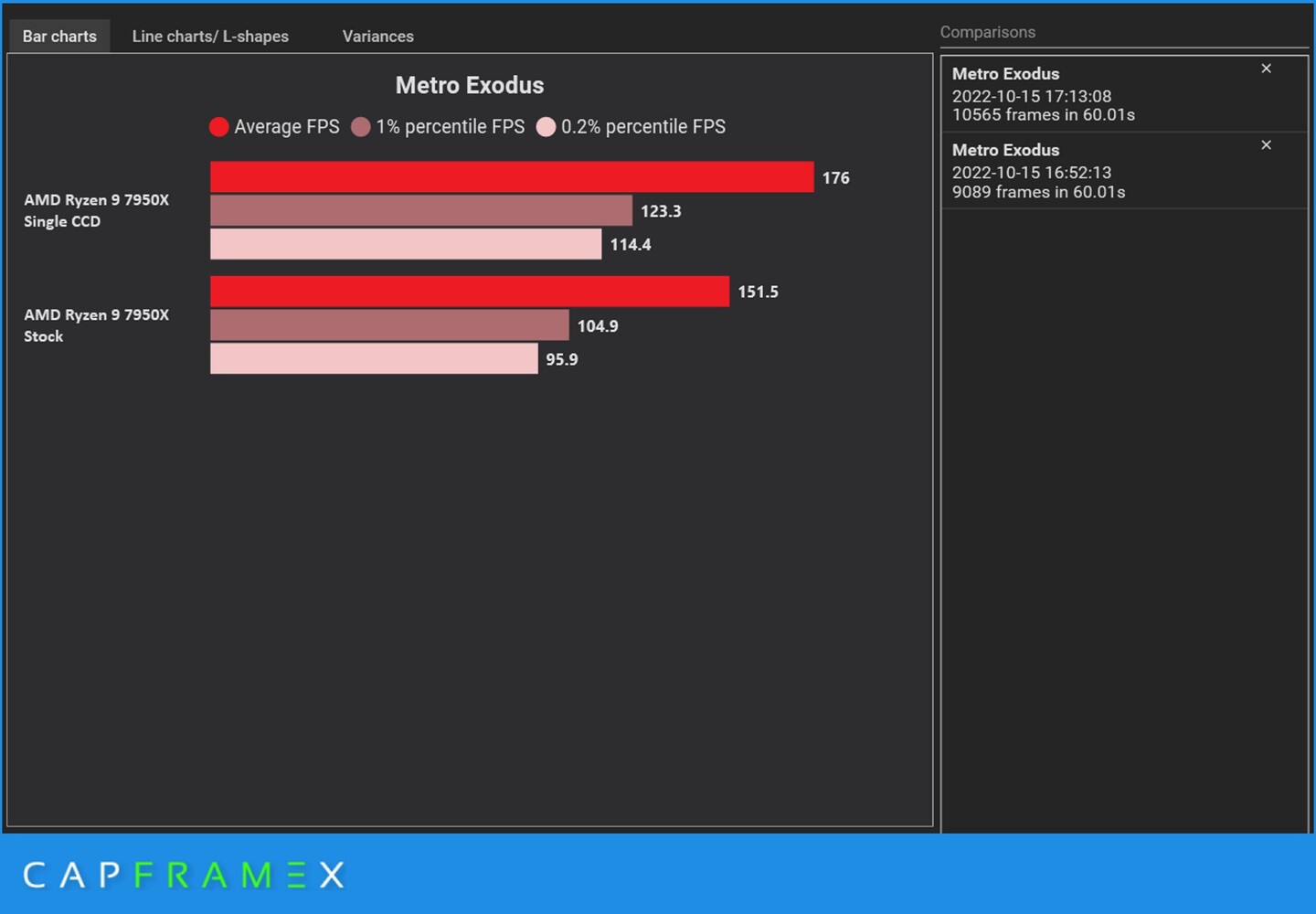The issue is that with two CCDs there is an inter CCD latency penalty if any game process handles are on both CCDs. HT on/off makes little to no difference, usually 1-2% plus or minus performance, depending on game (I had 5950X), disabling one CCD however forces all process handles to be on the same CCD (obviously), eliminating the chance for that latency penalty.
Win 11 and AMD will probably eventually fix this.
The 7950X is still faster than the 7700X in stock configuration.
Zen is highly sensitive to latency, it's why extremely quick memory in 1:1 is needed for gaming performance similar to Intel, and why the X3D has such an advantage despite lower clocks, due to the large cache meaning memory is accessed less frequently for latency sensitive things.
This is also why 12/13xxxK is still king for gaming, due to monolithic chip with consistent, low latency and better memory controllers.






